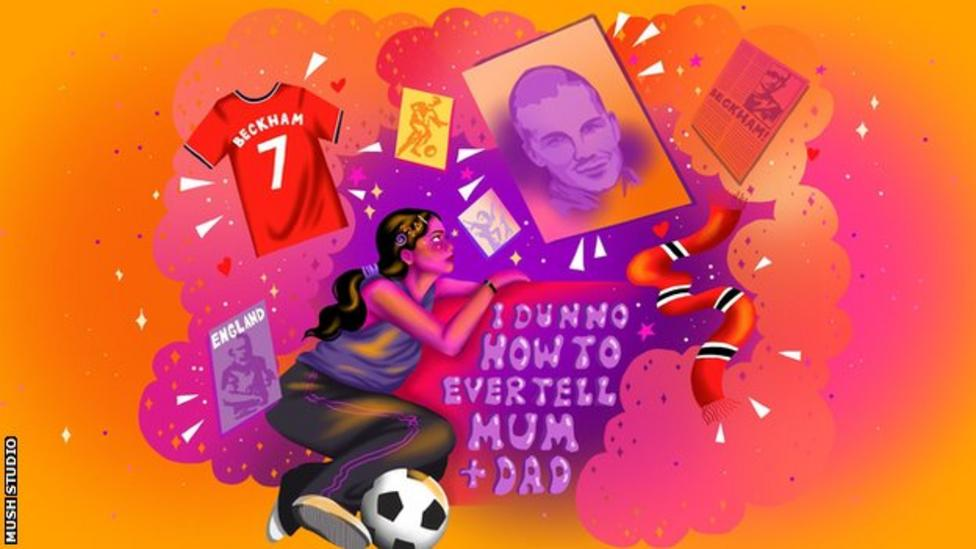While searching for ideas for today's entry I stumbled to an article in BBC.com titled "Bend it Like Beckham: Five reasons the film is still iconic 20 years on". Firstly I could not believe that twenty years have passed since the release of this entertaining movie. I recall watching it for the first time and how I enjoy it every time I re-watch it. The last sentence in the article really caught my thinking : "But, most importantly, allow her to be unapologetically herself".

I understand that we all have tendency to please others. It’s our innate human desire to want to be accepted, understood, seen, heard and to feel like we belong. In the early days it was vital to our survival to belong and be a part of the tribe. If you were left outside of your tribe you were vulnerable to many external threats and you faced the risk of starving to death from the lack of food, freezing to death due to lack of shelter, or being eaten up by a predator. This is why still today we feel like we will die if we don’t get accepted by other people. We are so caught up in being the version of ourselves who we think we should be according to everyone else, constantly trying to fit it and seek outside validation and acceptance, so much so that we oftentimes can get lost.
Getting accepted by others is a human trait but apparently there is another version of it called people pleaser. It’s part of the human condition, we are social creatures. We want to be liked by everyone. No-one likes the feeling of being disliked, being rejected doesn’t feel well. People-pleasing is associated with a personality trait known as "sociotropy," or feeling overly concerned with pleasing others and earning their approval as a way to maintain relationships.
Some possible causes for being a people pleaser are:
Poor self-esteem: Lack of self-confidence, people-pleasers have a need for external validation, and they may feel that doing things for others will lead to approval and acceptance.
Insecurity: Worry that other people won't like them if they don't go above and beyond to make them happy.
Perfectionism: Sometimes people want everything to be "just so," including how other people think and feel.
Past experiences: Painful, difficult, or traumatic experiences may also play a role. People who have experienced abuse, for example, may try to please others and be as agreeable as possible in order to avoid triggering abusive behavior in others.
Altruism: A person might genuinely want to make sure that other people have the help that they need. The need to feel validated or liked: by making sure that people are happy, they feel as if they are useful and valued.
People-pleasing isn’t necessarily a bad thing. Being a concerned and caring person is an important part of maintaining healthy relationships with loved ones. It becomes a problem, however, if you are trying to win approval in order to shore up weak self-esteem or if you are pursuing the happiness of others at the expense of your own emotional well-being.
Efforts to keep other people happy can stretch people pleasers own physical and mental resources too thin. Trying to manage it all can leave ones plagued with stress and anxiety, which can have detrimental effects on ones health. Helping other people can actually have a number of mental health benefits. But not leaving time for yourself means you might end up experiencing the negative health consequences of excess stress.
Being a people-pleaser would making it difficult to pursue our own happiness, it's important to find ways to set boundaries and take back our time. We can’t please everyone. That is a simple fact. We do not like everyone so it is impossible to be liked by everyone
Becoming unapologetically you is an incredible worthwhile journey that allows you to live more freely and fully. When you release the weight of people and their opinions off your shoulders, you begin to live your life differently and it feels liberating. Being unapologetically yourself is the short cut to more happiness, peace and fulfillment in life.
The first step to becoming unapologetically you is to become conscious of all your conditioning. You need to start stripping back the layers of your past conditioning and address your trauma, old wounds, fears, and worries - because all of these hold you back from expressing your true authentic self.
The second step to becoming unapologetically you is to get to know yourself at a core level. Who are you truly, behind the mask that you’re wearing?
The third step is to take off your mask and to fully embrace who you are and to embrace your imperfections and perceived flaws - because these are what make you unique. Rather than trying to please other people and trying to fit in, it’s time to give yourself permission to show all of you. It’s time to shine your light.


No comments:
Post a Comment